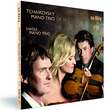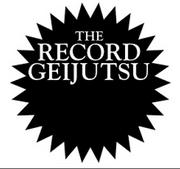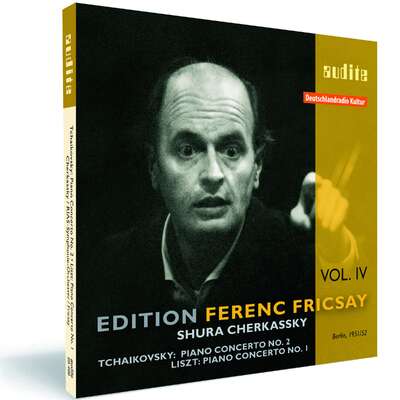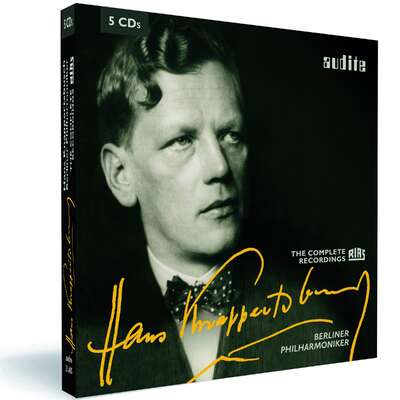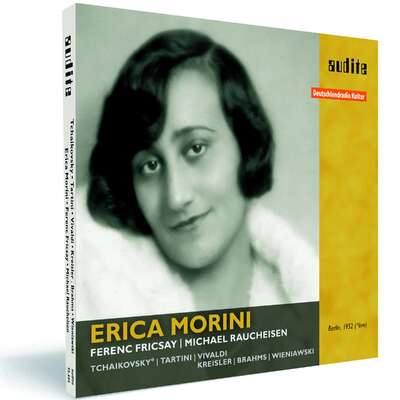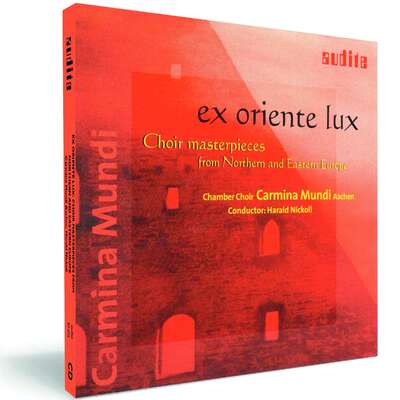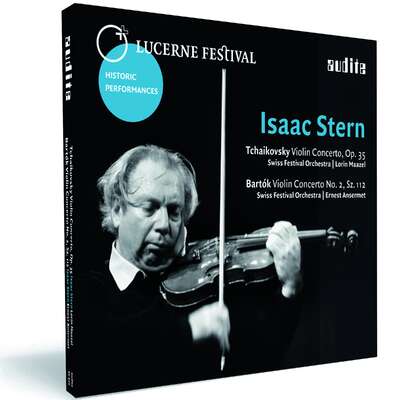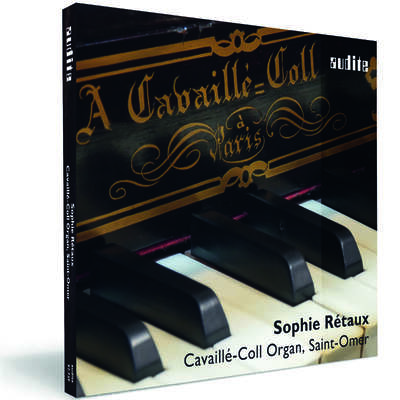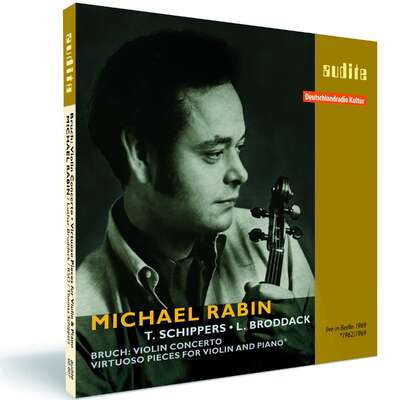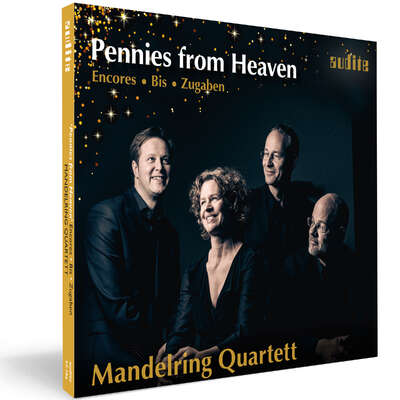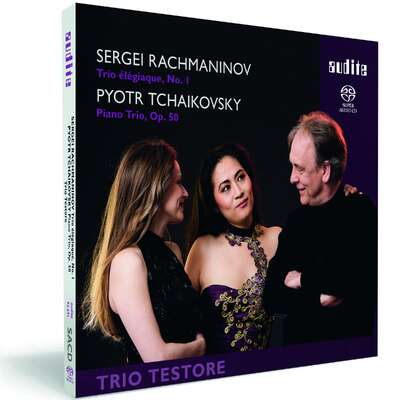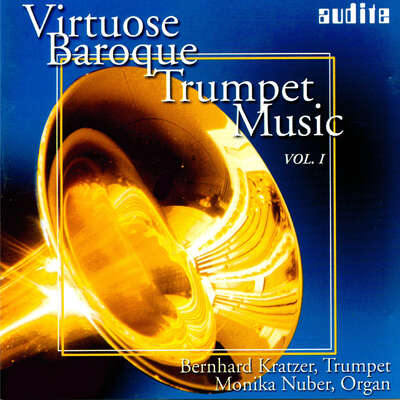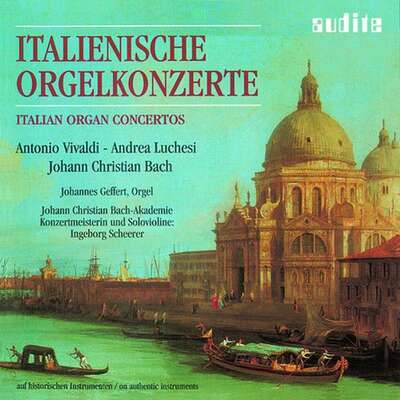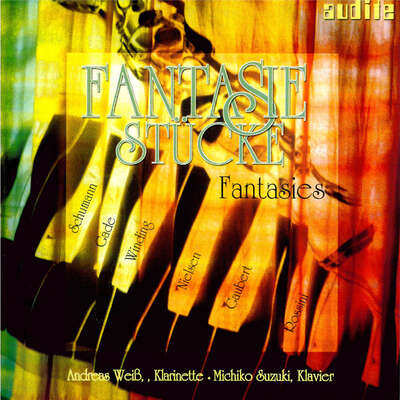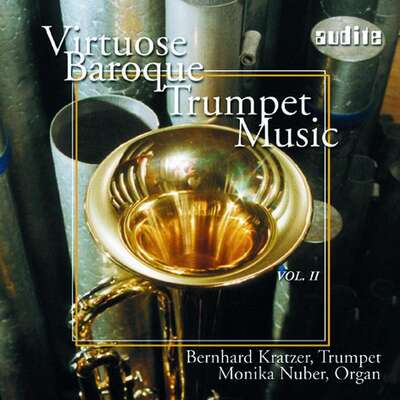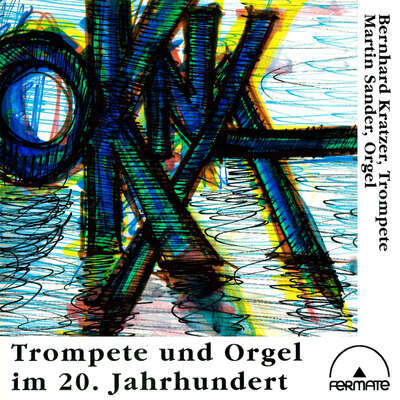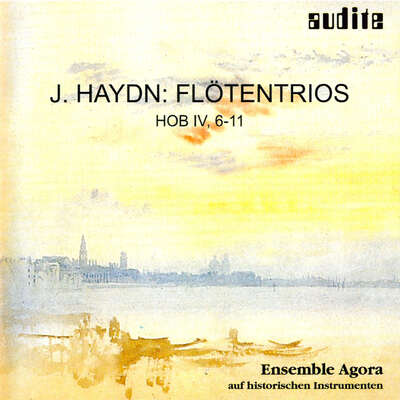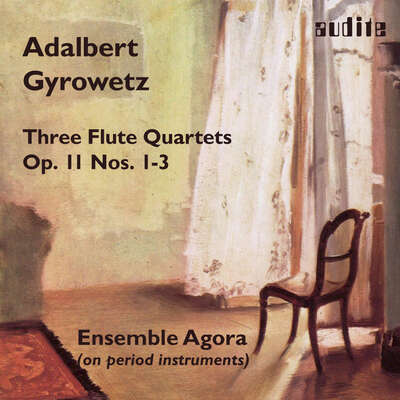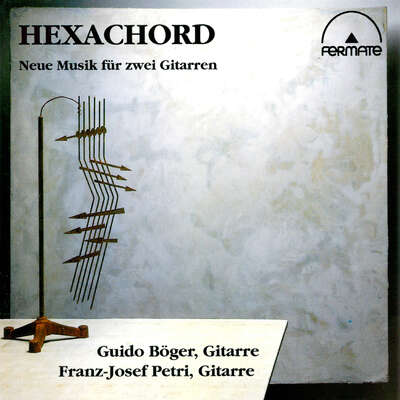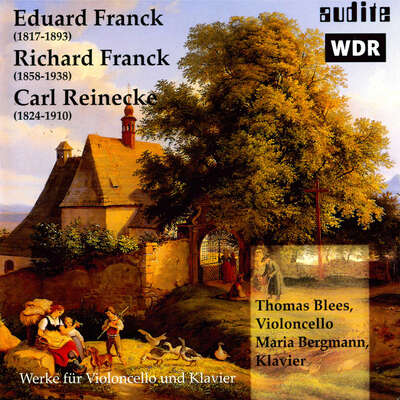
In the history not only of the piano trio but also of Russian chamber music in general, Tchaikovsky’s Piano Trio Op. 50 forms a monumental milestone in two movements. This masterpiece of 1882 is dedicated to the memory of his friend Nikolai Rubinstein, the founder of the Moscow Conservatory.more
In the history not only of the piano trio but also of Russian chamber music in general, Tchaikovsky’s Piano Trio Op. 50 forms a monumental milestone in two movements. This masterpiece of 1882 is dedicated to the memory of his friend Nikolai Rubinstein, the founder of the Moscow Conservatory.
Details
| Piotr Ilyich Tchaikovsky: Piano Trio, Op. 50 | |
| article number: | 92.673 |
|---|---|
| EAN barcode: | 4022143926739 |
| price group: | ACX |
| release date: | 20. April 2012 |
| total time: | 50 min. |
Bonus Material
Informationen
In March 1881 Pyotr Ilyich Tchaikovsky received the news of the death of his friend Nikolai Rubinstein whilst he was in Paris - a great blow for the composer who had been engaged to teach at the newly founded Moscow Conservatory thanks to Rubinstein. Tchaikovsky decided to dedicate a piece of music to his late friend - not a classical work for choir or orchestra but one for piano trio. The memory of Rubinstein evidently enraptured him to the extent that he burst all dimensions with his Trio Op. 50. Two monumental movements make up a memorial work which, however, also has optimistic moments. Following an "Elegiac piece" is a set of variations with a duration of nearly thirty minutes which comprises a slow movement, scherzo and finale, all under the roof of a simple Russian theme. Technically, this trio presents a challenge to every piano trio.
The Swiss Piano Trio with Martin Lucas Staub (piano), Angela Golubeva (violin) and Sébastien Singer (cello) has won numerous prizes at international competitions, including the International Chamber Music Competition Caltanissetta in Italy and the Johannes Brahms Competition in Austria. Founded in 1998, the ensemble has a busy performing schedule and has played in over 40 countries on all continents. The Trio performs chamber music in great concert halls across the globe. As an ensemble of soloists, the three musicians regularly appear with renowned orchestras. Numerous recordings for radio, television and on disc document the artistic activities of the ensemble.
Reviews
www.musikansich.de | November 2012 | Sven Kerkhoff | November 1, 2012 Tönendes Grabmal
Seinem im Alter von nur 46 Jahren verstorbenen Lehrer und Förderer NikolajMehr lesen
Ensemble - Magazin für Kammermusik | 4-2012 August/September | Ernst Hoffmann | August 1, 2012 Trauergesang zu dritt
Solche exorbitanten Spieldauern, und das noch für ein Kammermusikwerk,Mehr lesen
International Record Review | July / August 2012 | Raymond Tuttle | July 1, 2012
Some might argue in favour of his String Quartet No. 1, and others for the string sextet Souvenir de Florence. For me, however, Tchaikovsky's mostMehr lesen
Another factor which might make the Piano Trio an unlikely work, in some ways, was the composer's antipathy for this combination of instruments. The booklet note quotes his letter to Nadezhda von Meck in which he claimed that it was 'an agony' for him to hear a piano trio, owing to the perceived 'artificiality' of balancing two string instruments against a piano. 'I had to impart a bit of violence on myself', he later wrote, 'in order to become used to an ensemble of instruments which my ears dislike.' I abhor violence, yet I am glad that Tchaikovsky was able to effect this change in his perception!
The Piano Trio has been lucky on disc. Two approaches have been taken to recording it. One is to assemble a great pianist, a great violinist and a great cellist, whether or not they have performed together extensively, and let them at it. The most famous example of this is the so-called 'Million Dollar Trio' of Arthur Rubinstein, Jascha Heifetz and Gregor Piatigorsky. This is an ensemble that looks great on paper, and the performance has many fine moments, although most of those moments are not the result of interaction between the musicians. Boris Berezovsky, Vadim Repin and Dmitry Yablonsky are more successful because they are more like-minded, and their reading throbs with a dark passion.
The other and more obvious approach is the one taken here – that is, to have an established piano trio play the work. The Swiss Piano Trio was formed in 1998, won major chamber music awards in 2003 and 2005, and has made several recordings, including Mendelssohn and Schumann SACDs for Audite (reviewed in May and July / August 2011). This ensemble received 'important artistic impulses' (the booklet's phrase, not mine!) from the granddaddy of all modern-day string trios, the Beaux Arts Trio, whose members were no strangers to this work. (Their 1970 recording, in many ways a keeper, unfortunately is disqualified by the decision to omit Variation VIII (Fuga) in the second movement.)
I know it will seem Iike damning with faint praise, but the present disc will probably appeal most to those who want to have Tchaikovsky's Piano Trio on a fine-sounding, well-balanced SACD. (It is not quite the only SACD of this work, but I have not heard the competition.) This is a goodish reading in which nothing goes terribly wrong, but not enough goes terrifically right to make it memorable. There's undeniable rapport among the three musicians and no sense of grandstanding. The work is played with dignity, although one could argue that some of its great moments are almost thrown away. I'm thinking of the moment near the end of the second movement when Tchaikovsky brings back the opening theme of the first. This can be devastating, but the Swiss Piano Trio remains dry-eyed. The closing funeral march can leave the listener feeling empty inside, much Iike the end of the Sixth Symphony, but again the musicians retreat from the cliff's edge. If you want to be wrecked by this music (and most of the time I do), the aforementioned Erato disc is the way to go.
I have some other reservations. At just over 50 minutes, this is quite a slow reading. The Erato performance is a full ten minutes faster, and the 'Million Dollar Trio' is just a tad slower than that. On this disc, some of the tempos drag. For example, the statement of the second movement's theme is marked Andante con moto, but con moto appears to have disappeared from the Swiss musicians' scores! Also, there's some wooden phrasing and a lack of general flexibility that make the music seem not only less dramatic but also less charming. Again, this could still be enjoyable in a concert hall, but not over and over again. I will keep this disc, but mostIy because I am fixated on Tchaikovsky's Piano Trio!
Infodad.com | 20.06.2012 | June 20, 2012
Delving a little more deeply than usual into the works of composers who areMehr lesen
kulturtipp | Nr. 12 (2.-15. Juni 2012) | Fritz Trümpi | June 2, 2012 Entfesselung zu dritt
Seine jugendliche Frische hat sich das Schweizer Klaviertrio zwar bewahrt,Mehr lesen
Record Geijutsu | June 2012 | June 1, 2012
japanische Rezension siehe PDFMehr lesen
Pizzicato | N° 224 - 6/2012 | ge | June 1, 2012 Gestalterische Kraft
Peter Iljitsch Tchaikovskys Opus 50, geschrieben im Andenken an Nikolai Rubinstein, ist weit mehr als ein klassisches Klaviertrio. Das Werk bietetMehr lesen
Die Trauer, der Schmerz, die der Komposition zugrunde liegen, haben in dieser facettenreichen Ausdeutung immer etwas Tröstliches, Erlösendes – mögen sie noch so schmerzvoll sein. Die drei Musiker gehen, wie so oft, aufs Ganze – in der Gewissheit, genau das Richtige zu tun.
Fanfare | December 2012 | Jerry Dubins
This is only the second single-disc SACD version of Tchaikovky’s A-Minor Piano Trio I’m aware of. It’s a shame, though, that nothing else wasMehr lesen
In Fanfare 34:6, I had high praise for the Swiss Piano Trio’s Mendelssohn, proclaiming it to be some of the most captivating I’d ever heard. One issue later (35:1), Steven E. Ritter called the Swiss Piano Trio’s Schumann “essential.”
To its rapidly growing discography, the ensemble now adds Tchaikovsky’s lone contribution to the piano trio literature and, based on this performance, it’s tempting to regard the Swiss Piano Trio as the gold standard among today’s active piano trios. It should be noted, however, that even gold is outclassed by platinum, and in this case I would have to say that as exceptional as the Swiss Piano Trio’s Tchaikovsky is, it doesn’t nudge from the top of the precious metals index the phenomenal performance by the young Italian ensemble billing itself the David Trio reviewed in 35:3. At the time that review was submitted, the David’s Stradivarius disc was not yet listed by the major mail order sites, but it is now. If I could pick only one version of Tchaikovsky’s trio to live with for the duration, the David’s would be it. And it should be added that it’s coupled with an equally outstanding performance of Shostakovich’s famous E-Minor Piano Trio.
With the Swiss Piano Trio, you get the Tchaikovsky, and that’s it, though it’s definitely a performance throbbing with Russian pathos and passion that will not disappoint. If having the work in SACD outweighs the short playing time, the extra cost—$19.99 vs. $15.99 for the double-feature David CD—and the even more winning David performance, you won’t go wrong with the Swiss Piano Trio’s very fine effort. Recommended, but not with blaring bugles and rolling drums.
